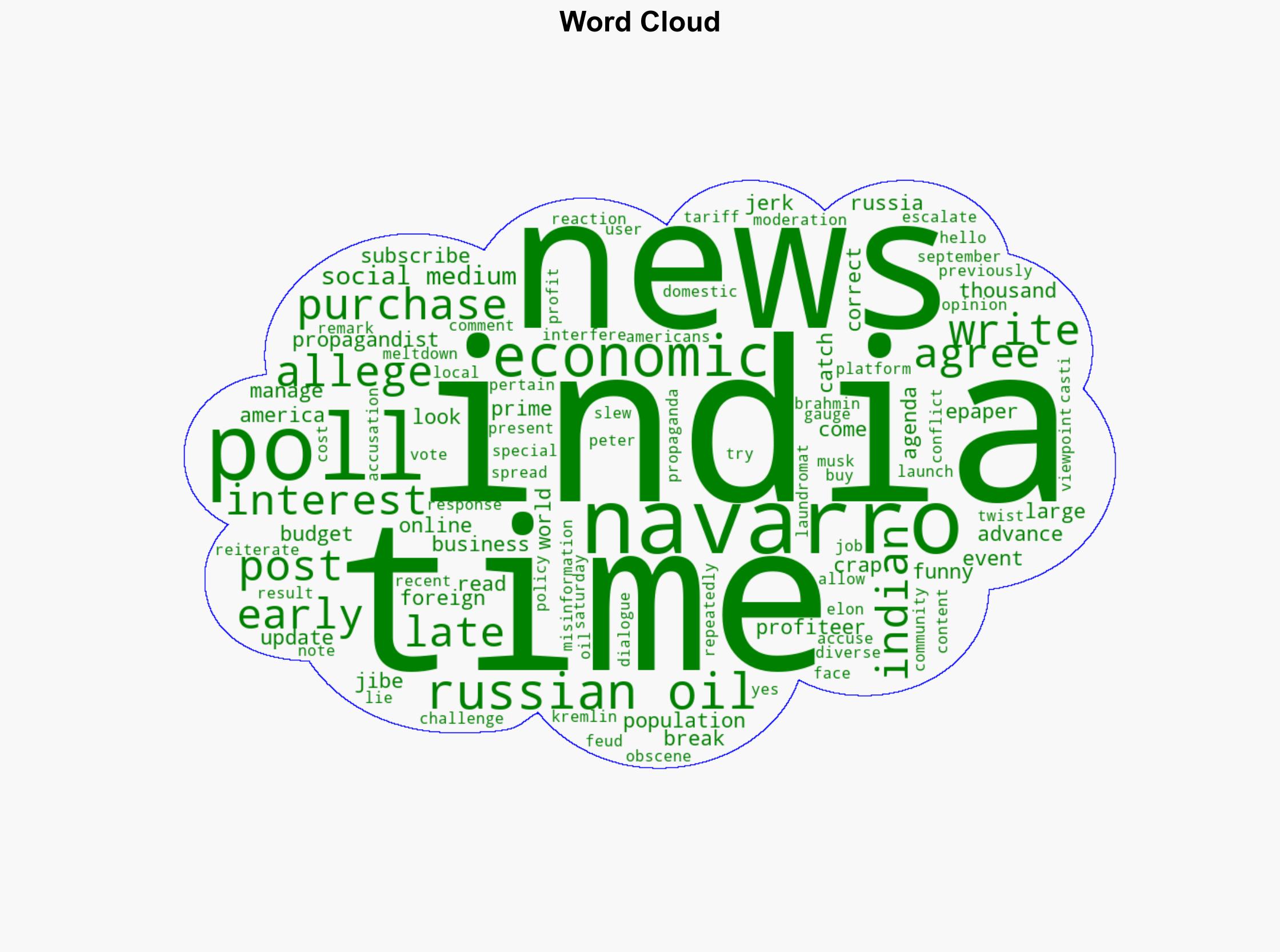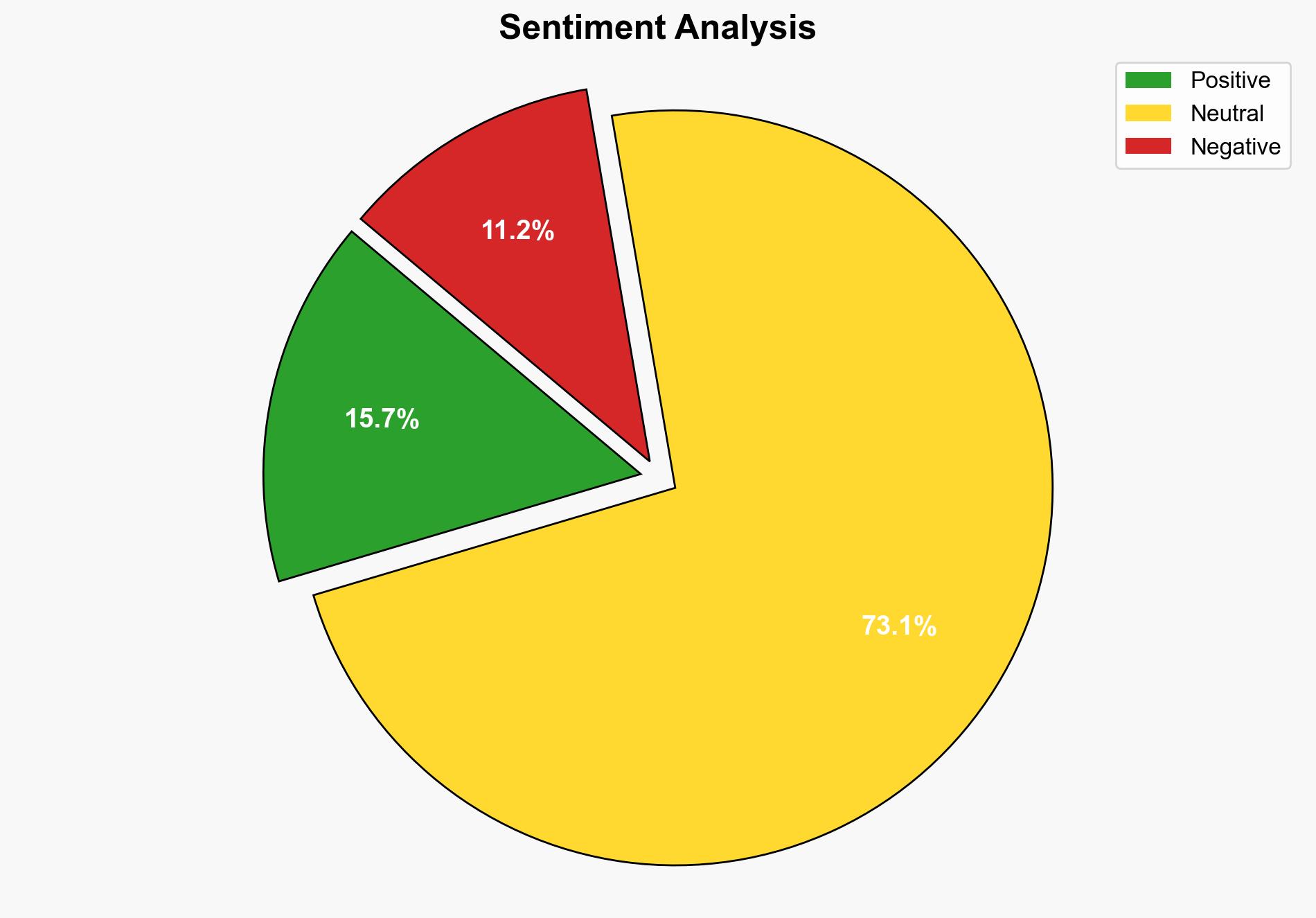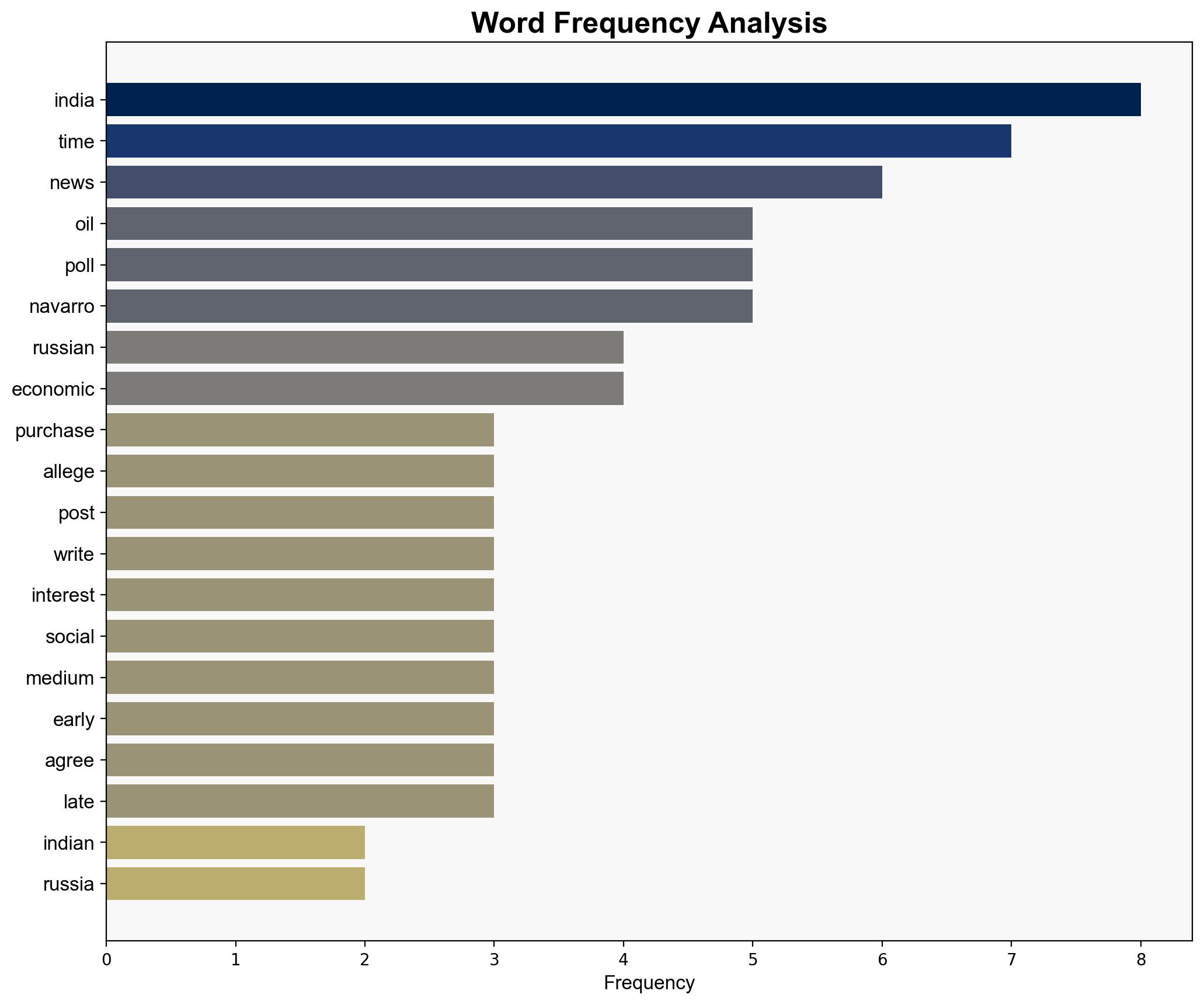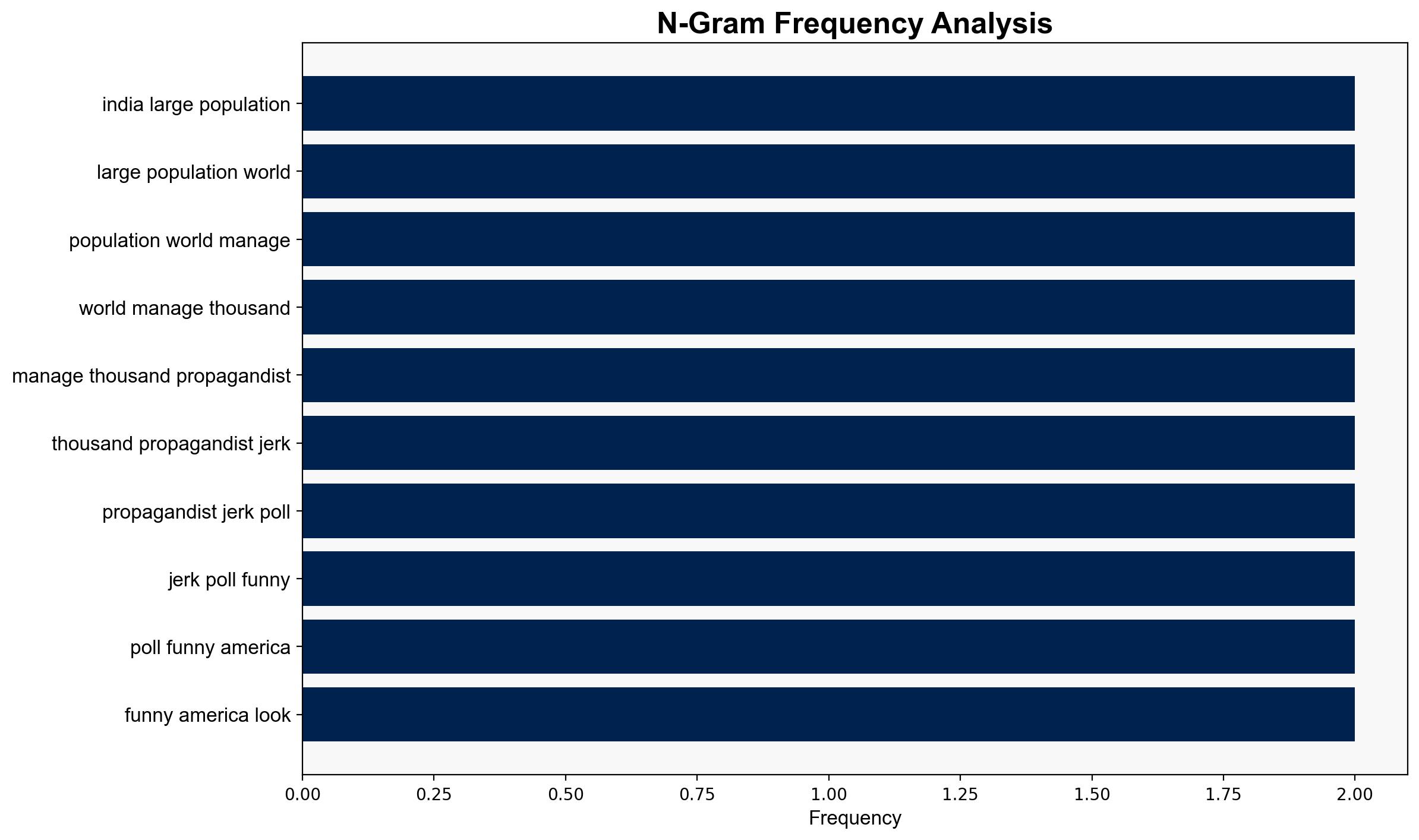Navarro cries wolf after another online reality check on India – The Times of India
Published on: 2025-09-09
Intelligence Report: Navarro cries wolf after another online reality check on India – The Times of India
1. BLUF (Bottom Line Up Front)
The most supported hypothesis suggests that Peter Navarro’s statements are part of a broader strategy to influence public opinion on U.S.-India relations, leveraging misinformation about India’s economic activities with Russia. Confidence level: Moderate. Recommended action: Enhance monitoring of misinformation campaigns targeting international relations and increase diplomatic engagement with India to clarify mutual positions.
2. Competing Hypotheses
1. **Navarro’s statements are a deliberate misinformation campaign**: This hypothesis posits that Navarro’s comments are strategically designed to sway public opinion against India by falsely portraying its economic activities with Russia as harmful to U.S. interests. This aligns with previous patterns of misinformation and could be aimed at influencing policy or public sentiment.
2. **Navarro’s statements reflect genuine concern about India’s economic policies**: This alternative suggests that Navarro’s comments are based on a genuine belief that India’s purchase of Russian oil undermines U.S. economic interests and that his public statements are an attempt to bring attention to this issue.
Using ACH 2.0, the first hypothesis is better supported due to the repetitive nature of Navarro’s accusations and the lack of substantial evidence backing his claims, which suggests a pattern of strategic misinformation rather than isolated concern.
3. Key Assumptions and Red Flags
– **Assumptions**: The first hypothesis assumes that Navarro has a strategic motive behind his statements, possibly influenced by political or economic agendas. The second assumes that Navarro’s concerns are based on factual economic assessments.
– **Red Flags**: The lack of credible evidence supporting Navarro’s claims about India’s economic activities with Russia. Repeated accusations without substantiation suggest potential cognitive bias or deliberate deception.
– **Blind Spots**: The analysis may not fully account for internal U.S. political dynamics influencing Navarro’s statements or potential undisclosed economic data.
4. Implications and Strategic Risks
– **Economic Risks**: Misinformation could strain U.S.-India economic relations, potentially impacting trade and investment.
– **Geopolitical Risks**: Escalating tensions between the U.S. and India could affect regional stability, particularly in the context of U.S.-China-India dynamics.
– **Cyber and Psychological Risks**: The use of social media to propagate misinformation poses a threat to public perception and could lead to broader misinformation campaigns.
5. Recommendations and Outlook
- **Mitigation**: Strengthen diplomatic channels with India to address and clarify economic and geopolitical concerns. Establish joint fact-checking initiatives to counter misinformation.
- **Exploitation**: Leverage the situation to enhance bilateral cooperation in cybersecurity and information integrity.
- **Scenario Projections**:
– **Best Case**: Diplomatic engagement resolves misunderstandings, strengthening U.S.-India relations.
– **Worst Case**: Continued misinformation leads to significant diplomatic fallout and economic repercussions.
– **Most Likely**: Ongoing diplomatic efforts mitigate misinformation impacts, maintaining stable relations.
6. Key Individuals and Entities
– Peter Navarro
– Elon Musk
7. Thematic Tags
national security threats, misinformation, U.S.-India relations, economic diplomacy





